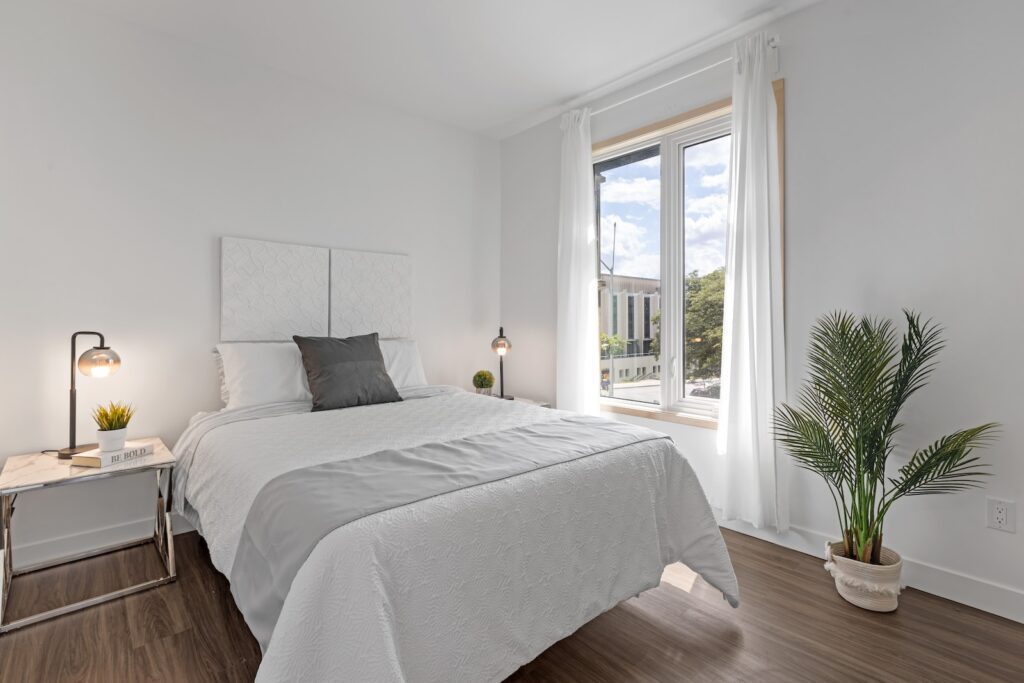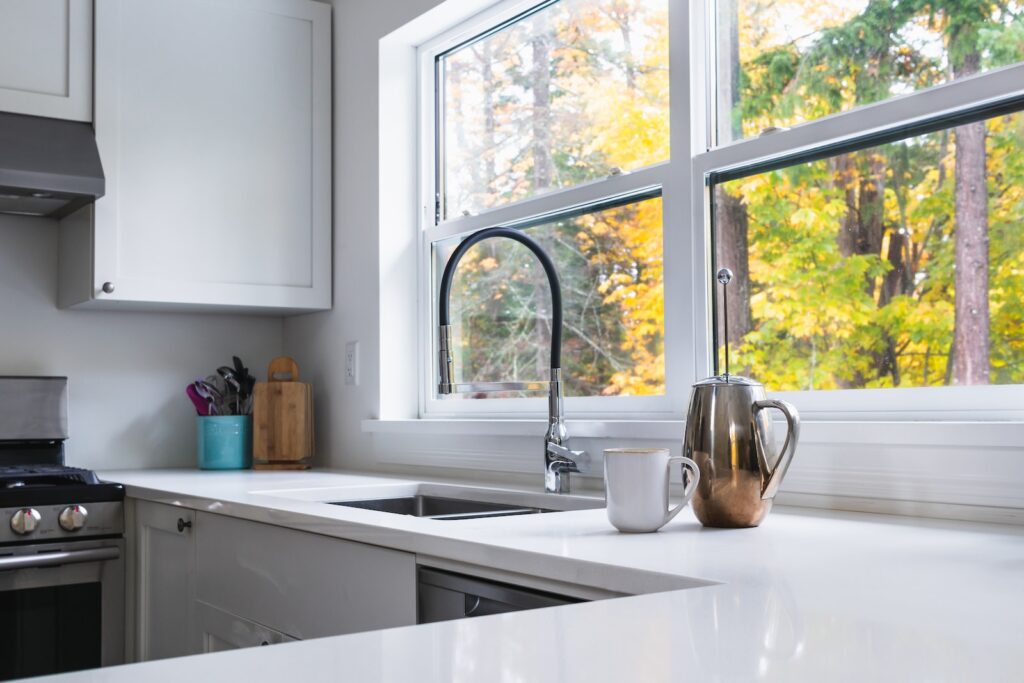Energy-efficient windows are an important consideration for homeowners looking to reduce their energy bills and environmental impact. However, with so many options on the market, it can be overwhelming to choose the right windows for your climate. That’s why we’ve put together this guide to help you understand the five factors you should consider when selecting energy-efficient windows for your home. From climate to material, we’ll cover everything you need to know to make an informed decision.

Choosing Energy-Efficient Windows for Your Climate
Energy-efficient windows are an essential part of any home. They not only offer insulation from the outside elements but can also help you save on your energy bills. However, not all windows are created equal. It’s important to choose the right windows for your climate to ensure maximum energy efficiency. Here are five factors to consider when choosing energy-efficient windows for your climate.
1. U-Factor and R-Value
The U-factor and R-value are two important measurements to consider when choosing energy-efficient windows. The U-factor measures the rate of heat transfer through the window, while the R-value measures the window’s resistance to heat flow. The lower the U-factor and the higher the R-value, the more energy-efficient the window.
When selecting windows for your climate, you should choose windows with a low U-factor and a high R-value. For colder climates, a U-factor of 0.30 or less and an R-value of 3.3 or higher is recommended. For warmer climates, a U-factor of 0.60 or less and an R-value of 2.2 or higher is recommended.
2. Window Frames
The type of window frame you choose can also impact the energy efficiency of your windows. Aluminum frames, for example, are not as energy-efficient as vinyl or wood frames. Vinyl frames are a popular choice for energy-efficient windows because they offer good insulation and are low maintenance. Wood frames, while more expensive, offer excellent insulation and are a good choice for colder climates.
3. Glass Type
The type of glass used in your windows can also impact their energy efficiency. Double-pane windows have become the standard for energy-efficient windows because they offer better insulation than single-pane windows. Triple-pane windows are even more energy-efficient but can be more expensive. Low-emissivity (Low-E) coatings can also be applied to windows to help reduce heat transfer.
4. Solar Heat Gain Coefficient
The solar heat gain coefficient (SHGC) measures how much solar radiation passes through the window and into your home. In warmer climates, you’ll want to choose windows with a lower SHGC to reduce the amount of heat that enters your home. In colder climates, you may want to choose windows with a higher SHGC to help warm your home.
5. Installation
Proper installation is just as important as choosing the right windows. Even the most energy-efficient windows won’t perform as well if they’re not installed correctly. Make sure to hire a professional to install your windows to ensure they’re properly sealed and insulated.
Benefits of Energy-Efficient Windows
Investing in energy-efficient windows can provide a range of benefits, including:
- Lower energy bills
- Improved home comfort
- Reduced noise pollution
- Increased home value
Energy-Efficient Windows VS. Traditional Windows
Energy-efficient windows offer a range of benefits when compared to traditional windows. Here are a few key differences:
| Energy-Efficient Windows | Traditional Windows |
|---|---|
| Lower energy bills | Higher energy bills |
| Improved home comfort | Less comfortable home |
| Reduced noise pollution | Less noise reduction |
| Increased home value | Less home value increase |
In conclusion, choosing energy-efficient windows for your climate is an important decision that can impact your home’s comfort and energy bills. Consider the U-factor and R-value, window frames, glass type, solar heat gain coefficient, and proper installation when selecting your windows. With the right windows, you can enjoy a more comfortable and energy-efficient home.
Frequently Asked Questions
What are the benefits of energy-efficient windows?
Energy-efficient windows can provide several benefits, such as reducing energy costs, improving indoor comfort, and reducing the environmental impact of your home. These windows are designed to minimize the amount of heat that enters or escapes your home, which can lead to significant savings on your energy bills. Additionally, energy-efficient windows can help regulate indoor temperatures, keeping your home cooler in the summer and warmer in the winter. Finally, by reducing the amount of energy you use to heat or cool your home, you can reduce your carbon footprint and contribute to a healthier environment.
How do I know which windows are energy-efficient?
When choosing energy-efficient windows, look for the Energy Star label. This label indicates that the windows meet strict energy efficiency guidelines set by the US Environmental Protection Agency (EPA). Additionally, pay attention to the window’s U-factor, which measures the rate of heat transfer through the glass and framing material. The lower the U-factor, the more energy-efficient the window. Other factors to consider include the window’s solar heat gain coefficient (SHGC), visible transmittance (VT), and air leakage rate.
What factors should I consider when choosing energy-efficient windows for my climate?
When choosing energy-efficient windows, you should consider several factors related to your climate, such as the amount of sun exposure, temperature range, and wind conditions. For example, if you live in a hot climate with a lot of sun exposure, you may want to choose windows with a low SHGC to minimize heat gain. If you live in a cold climate, look for windows with a low U-factor to help keep heat inside your home. Additionally, consider the wind conditions in your area and choose windows with a high resistance to air leakage.
Is it worth investing in energy-efficient windows?
Investing in energy-efficient windows can provide significant long-term savings on your energy bills. While these windows may have a higher upfront cost, the energy savings can quickly offset the initial investment. Additionally, energy-efficient windows can increase the value of your home and make it more attractive to potential buyers. Finally, by reducing your energy consumption, you can reduce your carbon footprint and contribute to a healthier environment.
Can energy-efficient windows be installed in older homes?
Yes, energy-efficient windows can be installed in older homes. However, the installation process may be more complicated than in newer homes. It’s important to work with a professional installer who has experience working with older homes and can ensure that the windows are properly installed and sealed. Additionally, older homes may require additional insulation or weatherstripping to further improve energy efficiency.
How to Choose Windows for Energy Efficiency
In conclusion, choosing energy-efficient windows for your climate involves several key factors. First, consider the U-factor and Solar Heat Gain Coefficient ratings to ensure your windows provide the right level of insulation and heat control. Second, think about the window frame material and its durability, maintenance requirements, and energy efficiency. Third, consider the window style and design that will best suit your property’s aesthetic and functional needs.
Additionally, it’s important to consider the installation process and the experience of the contractor you choose. A professional installation can help ensure your windows are properly sealed, reducing drafts and improving energy efficiency. Finally, don’t forget to take advantage of any rebates or incentives available for energy-efficient upgrades in your area.
By taking these factors into account, you can make an informed decision and choose energy-efficient windows that will save you money on utility bills and reduce your carbon footprint. So, do your research, consult with experts, and make an investment that will benefit both your home and the environment for years to come.


